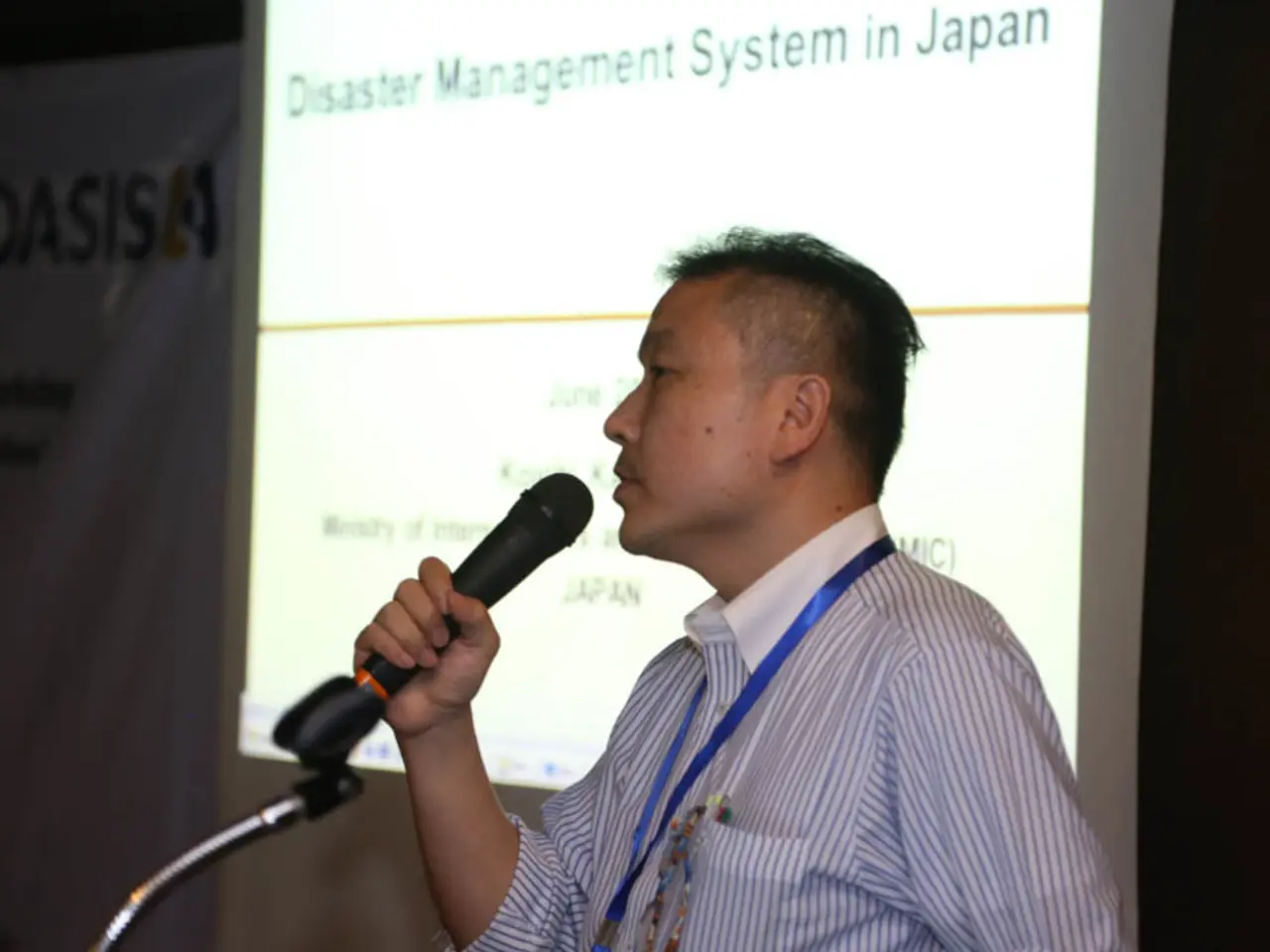Government initiative proposes new regulations for nuclear reactor operations
Restarting Taiwan's Ma-anshan Power Plant: A Comprehensive Approach
The Ma-anshan Power Plant in Taiwan is on the brink of a potential restart, with stringent requirements set by the country's Nuclear Safety Commission (NSC) to ensure safety, regulatory compliance, and public scrutiny.
Regulatory Compliance
To restart the reactor, approval from the NSC is essential. The plant must pass rigorous inspections and safety reviews, confirming no operational or safety concerns exist. This includes compliance with Taiwan’s national nuclear safety and environmental regulations [1][5].
Staff and Operations
A qualified workforce is crucial for safe operation. Trained nuclear engineers, operators, maintenance personnel, and safety staff must be in place, with current certifications and training to meet operational standards. Given the plant was offline since May 2025, restarting would involve requalification, refresher training, and readiness testing for all critical staff [4].
Maintenance and Technical Checks
The plant requires thorough maintenance, testing, and system checks to ensure all reactor components, safety systems, and control mechanisms function properly before restarting. This likely entails inspections of pressure vessels, cooling systems, containment integrity, instrumentation, and backup safety features [3].
Earthquake and Natural Disaster Safety
As a seismically active region, earthquake resilience is paramount. The Ma-anshan plant must maintain and continually update robust earthquake safety designs, monitoring equipment, and emergency protocols compliant with national standards for seismic safety [5].
Emergency Preparedness Plans
Comprehensive emergency response plans must be in place, aligning with national disaster management policies and involving local communities and authorities for evacuation procedures, communication, and safety drills.
The NSC has proposed an amendment to the Regulations on the Application for an Operating License of Nuclear Reactor Facilities, requiring nuclear facility operators to apply for a renewal of the license and submit a restart plan, radiation assessment, and earthquake safety reports [2].
The amended regulations also require operators to submit plans for maintaining safe operations if they seek to extend their operational licenses. Taiwan Power Co can conduct a peer review to assess if the plant satisfies the conditions necessary for reactivation [2].
The radiation and earthquake-resistance assessment requires Taipower to conduct geological surveys based on new seismic data and reinforce its nuclear facilities accordingly [2]. The final version of the regulations could be promulgated in October [2].
The Ma-anshan Power Plant has conducted a comprehensive safety inspection following the nuclear incident at the Fukushima Dai-ichi nuclear power plant in 2011 [1]. A referendum on August 23, 2025, will decide on restarting the Maanshan-2 reactor, contingent on the absence of safety concerns by authorities [1][2][3].
In conclusion, the restart process involves a combination of regulatory approval, staff readiness, plant maintenance and safety validation, and robust earthquake safety and emergency planning, consistent with Taiwan’s stringent nuclear safety framework.
Science plays a crucial role in the thorough maintenance and technical checks of the Ma-anshan Power Plant, ensuring all reactor components are functioning properly before the restart. Medical-conditions, specifically those related to occupational health and safety, are considered as qualified staff undergo requalification, refresher training, and readiness testing to meet operational standards.
Health-and-wellness, as well as space-and-astronomy, might not be directly associated with the Ma-anshan Power Plant restart; however, the comprehensive disaster management plans align with universal principles of emergency preparedness and disaster response, incorporating lessons learned from various natural and man-made disasters around the world.




